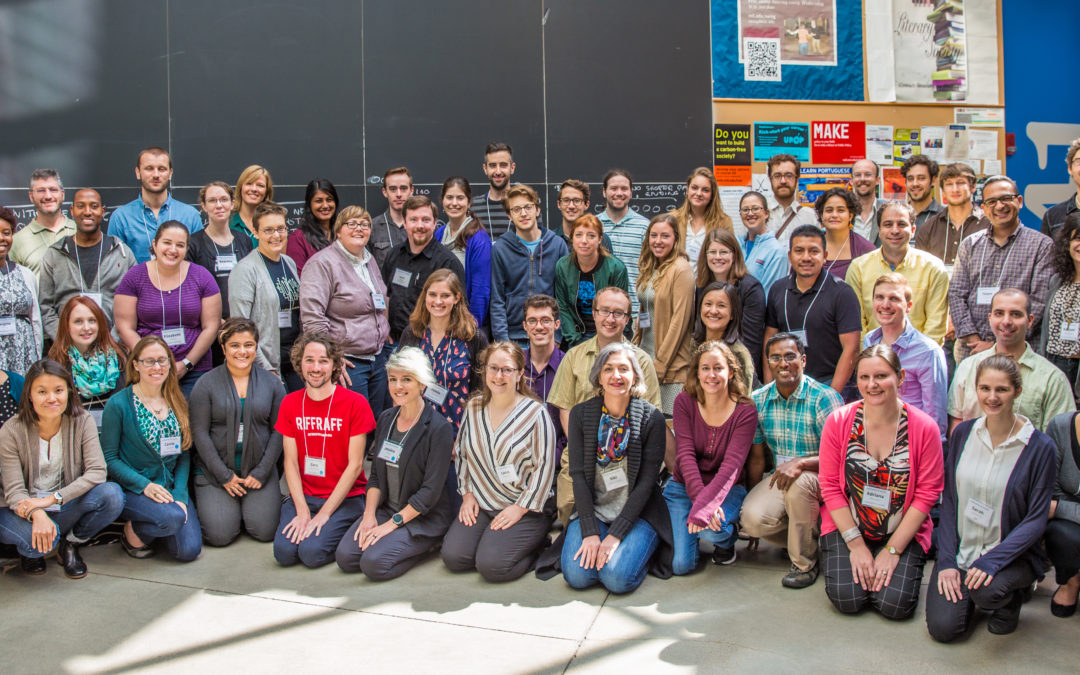Scientists do not operate in a political vacuum. We carry out science in the context of the society in which we live. Political events can shape and change this environment, our ability to work, and even the science itself, through the effects on the society in which we live, the policies that affect the scientific enterprise, and particularly how governments fund scientific research.
Many of us may be questioning what will happen to science, and the role that science and evidence have in politics, after recent events such as the U.S. Presidential election and the U.K.’s referendum on leaving the E.U. The election of Donald Trump as President of the United States has stunned many scientists in the immediate reaction from the scientific community. With virtually no interaction between the scientific community and the Trump campaign, many are left wondering what the scientific priorities of a Trump administration may be, particularly on the issue of climate science. Likewise “Brexit” in the UK has seen a change in the makeup of the British government, and the Autumn Statement on the budget is due, with speculation rife as to what it will mean for science.
This is a time of great concern and uncertainty to many within our scientific community. Given the rhetoric on wider societal issues worldwide, it is not only science about which there are concerns, but also diversity and inclusion, the international movement of scientists, and a host of other issues. Many of us may be inspired by the debates of this year to advocate for change, or to protect certain elements of our system.
The landscape of science advocacy is undoubtedly changing, but at FoR we want to help junior scientists in whatever way we can. We want to help junior scientists to get together and discuss the problems they face, and the issues they are worried about, and help them to find ways to solve them. We want to help them to connect with the wider public to communicate why these issues are important. We want to help scientists talk to – and listen to – other members of our society. We want scientists to be able to take time away from the bench to do so. Now more than ever before, scientists may be looking to advocate, and it is in the interest of our whole community that they are able to do so, are recognized for it, and supported in doing it.
Not all scientists need to be advocates; but cultural attitudes acting to dissuade those who do so are harmful to science’s relationship with society. The scientific community is heavily dependent on the public good will to fund them. Working for the public to satisfy our intellectual curiosity is a privilege, not an inherent right. Science does not exist in a bubble, but is a part of society. We should be enabling those of our community who want to connect more directly with society.
We have an incredibly well-trained and very large population of junior researchers, and as an enterprise we make a surprisingly small effort to see that that population thrives in non-academic settings, which can in turn be for the benefit of the enterprise itself, and society as a whole. It is time to put “more PhDs make America smarter” to the test – it is time to let junior scientists contribute to our society, to enable them, support them, and reward them for helping all of us.
Future of Research is currently evaluating how events will unfold, but we want to reassure the community of our commitments in our ongoing efforts in this are:
- we want to help those who wish to advocate do so;
- we want to help those who advocate for all of us receive recognition, and not suffer penalties for being away from the lab;
- we want to continue to advocate for and with junior scientists;
- we want to help junior scientists connect with each other and develop a sense of community to support each other.
As a community, we know scientists can work together to solve massive problems and challenges. If there are problems and challenges ahead for the enterprise as a whole, we need to work together and help each other to solve those too.
Please feel free to contact us at info@futureofresearch.org with concerns, questions and comments.



I am a semiretired PhD who’s studied man’s impacts on aquatic ecosystems, both marine and freshwater for over 50 years. I live in Utah. When I heard that Congress and the Executive were contemplating allowing coal wastes to be disposed into the Waters of the United States, I wrote all members of Utah’s delegation a principled scientifically based letter urging them to carefully consider the impacts of coal wastes on freshwater streams. I was non partisan, and only stuck to the facts and personal observations, having grown up in East Tennessee’s coal country, and having studied coal’s impacts on the local Tennessee streams. I was shocked that not one of our delegation responded to my letter, and then they, to a person, supported the Executive’s wish to allow coal to be dumped into streams. We all know the Executive is unhinged when it comes to the environment, but I assumed that the Legislative would be at least receptive to diverse information. Apparently, this is not so. It will, I’m afraid, take a united effort to educate both the Executive and Legislative branches, which unfortunately means we must come together as any other special interest group. At this moment I am very concerned about the Endangered Species Act. I do believe it needs significant reworking, but I am afraid that it may be gutted, which would be tragic.